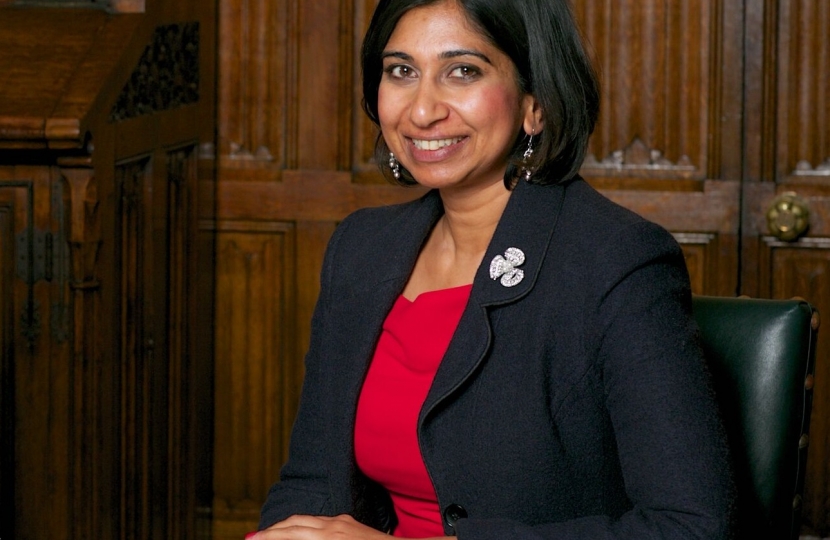
What does the face of 21st Britain look like? Are we a people at ease with ourselves, united by a strong sense of British values, transcending race, class and age?
Or, in the aftermath of an historic test of how we see our country’s place in the world, is talk of a divided nation justified?
Tolerance, openness, compassion, and fairness define Britain, but whether we are united is less clear. In many parts of the country, a ‘tale of two cities’ persists, with communities living parallel lives, rarely brushing up against each other, and experiencing dramatically divergent life chances.
This self-imposed segregation weakens the fabric of our society and has an impact on the economy too.
We are becoming a more diverse society. In the next 10 to 15 years, the proportion of the UK’s population who are either under 18 or over 60 years old is projected to rise from 42 to 47 per cent. The proportion of British residents who are members of a minority ethnic group will rise from 16 per cent in mid-2012 to around 38 per cent by 2050. And based on the trends of the last 40 years, the income gap between the richest and poorest members of society will widen.
When we look at this growing diversity, and think about the integration we need, it is vital for us to talk frankly. Otherwise, latent malaise and frustration about divisions will be exploited by far-right populists.
That’s why it is important to recognise the cultural impact of fast-paced immigration: an annual average of 248,000 between 2011 and 2015, compared with an annual average of 37,000 between 1991 and 1995.
When the Social Integration Commission looked at social integration in Britain today, it found that highly diverse areas were not necessarily integrated. For example, whilst London is more diverse than the rest of the country, it is less integrated. Londoners’ actual social groups are in fact the least likely to properly reflect the age, income and ethnic mix of the city around them.
The commission also found that employed professionals had fewer social interactions with those who are unemployed than would be expected if there was no social segregation. This raises significant questions about how social integration may affect access to work, when around 40 per cent of jobs are found through personal contacts.
So what’s the way forward? First we need to define what we mean by social integration. When can an immigrant be seen as ‘integrated’ into British society? What are the key indicators showing that people have adapted to life in the UK? This will help targeting of resources and measuring progress.
Second, since a common language is fundamental for integration, we need to put more stress on language fluency. Worryingly, census figures for 2011 showed that just under 800,000 people living in the UK had no command of English. The problem is most acute among women: 60 per cent of those living in England and Wales but unable to speak the national tongue are female.
Those who do not speak English cannot learn, work or engage with wider society, and ghettos spring up. We need better ESOL, targeted at rural areas and low-skilled workers and we need to assess ability better.
Third, integration policy needs to respond to all types of migration, including short-term EU and student migration. Work to support integration needs to be mainstreamed into all policy areas.
Housing and planning policy, for example, should take greater account of increasing interaction within new communities by mixing housing type and prioritising community spaces for collective activities.
Fourth, we need greater focus on bringing diverse groups of people together. Sports, volunteering, and certain faith groups create that sense of teamwork, combating isolation. Street parties and national celebrations also work. The National Citizenship Service and the Challenge have been remarkable at building meaningful camaraderie between young people from unrelated walks of life. Scaling these projects up and extending their principles to adults and new arrivals should be explored.
Finally, the Controlling Immigration Fund (a strong successor of the Migration Impact Fund) aims to help communities experiencing high and unexpected volumes of immigration to ease pressures on services and to pay for additional immigration enforcement. This needs to explicitly deal with the issue of integration of migrants – not simply manage their effect on public services.
Over the last 50 years Britain has become more broad-minded, equitable and open. The experience of migrants to this country in the 1960s, such as those of my father, bear no comparison to those of new migrants in the 2000s, or even myself, born and educated in the UK.
However, we now face a new era of striking the right balance between permissiveness and respect; a challenge that needs all Britons, not in spite of our differences but because of what we share, to embrace.
Published on conservativehome
